Business
Exchange rate falls to N900/$1 as operators ask ‘where is the dollar’
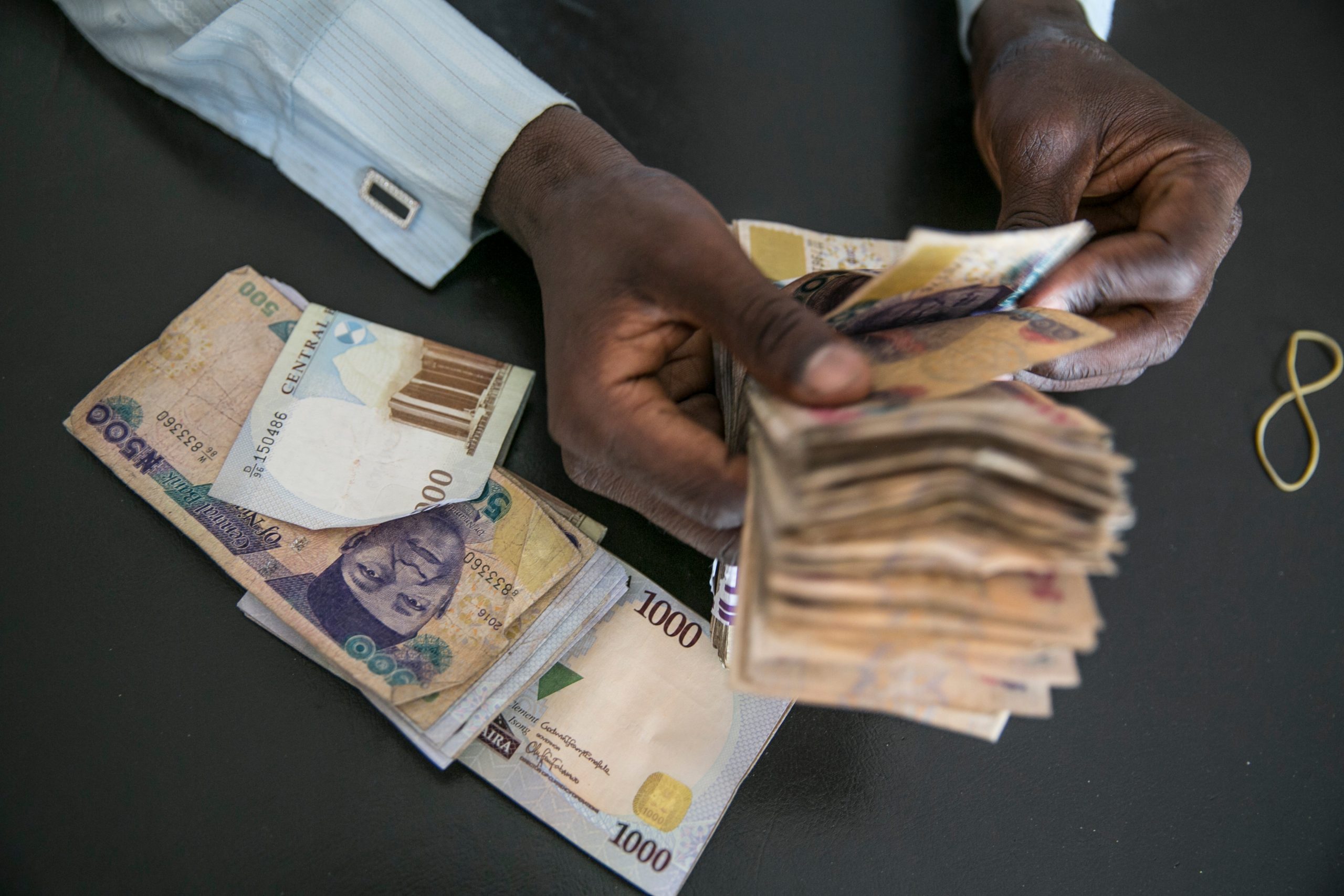
The exchange rate between the naira and the dollar plummeted to N900/$1 on the black market, based on quotes received by newsmen late on Tuesday.
This represents a stark depreciation from N840/$1 where it traded late last week, subsequent to the central bank’s warning to speculators about a potential decline.
The rates traded for around N865-N870/$1 earlier on Tuesday but the decline later in the evening suggests rapid demand is on the rise as supply challenges persist.
In mid-August, the dollar was quoted as low as N955/$1, stoking fears among investors that the exchange rate might plummet to N1000/$1.
The Tinubu administration, however, indicated its resolve to tackle the rapid depreciation of the exchange rate, bolstered by the central bank’s commitment to intervene.
Furthermore, the government publicized that the NNPC had secured a deal to borrow $3.5 billion, funds earmarked to boost supply amidst escalating demand pressures. Such measures buoyed the local currency, hinting that the black market premium over the official I&E Window might shrink to a mere 5%, a scenario welcomed by the market.
Yet, recent insights from JP Morgan revealed that as of December 2022, Nigeria’s central bank possessed net reserves amounting to approximately $3.7 billion. This disclosure rattled analysts, and the exact cause behind the naira’s depreciation remains nebulous.
Operators, speaking to Nairametrics under the condition of anonymity, suggested that the currency’s slide can be attributed to mounting demand pressures.
One such operator, choosing to be identified simply as “Musa”, speculated that the currency’s brief appreciation earlier in the week was triggered by speculator anxieties over potential appreciation. However, Musa emphasized that genuine demand persists, and it remains unfulfilled due to unresolved supply issues.
“We have heard so much from the government but we are yet to see the dollar. Maybe when it starts to flow the exchange rate will be stronger” Musa stated.
Adding another layer, Nigeria’s central bank declared its intentions to reincorporate BDC operators into the forex market, guided by a revamped set of protocols. This maneuver was heralded by many analysts who conversed with Nairametrics as a judicious stride towards ameliorating liquidity at the retail level.
In related news, trading on the official I&E window on August 22 witnessed the exchange rate between the naira and the dollar settling at N770/$1, a drop from N761.32 the previous day. The intra-day high soared to N799.9/$1, whereas the intra-day low dipped to N720/$1. Market activity for the day registered a turnover of $122 million.
Currency tracking platform AbokiFX also captured the exchange rate trades at N900/$1 on Tuesday.
Business
Emirates Airlines return to Nigeria October 1
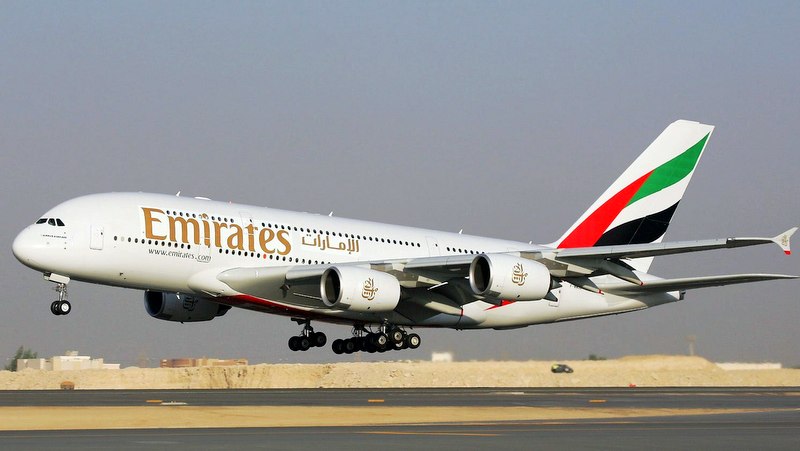
Emirates Airlines has confirmed its return to operations in Nigeria starting October 1, 2024.
The airline disclosed this via its official X handle Thursday.
“We’re back, Nigeria! We’ll be resuming services to Lagos from 1 October 2024, and we can’t wait to offer unrivalled connectivity to Dubai and beyond to over 140 cities,” the tweet read.
The airline will be operating a daily service between Lagos State and Dubai, and will offer customers more choice and connectivity from Nigeria’s largest city to, and through, Dubai.
Business
Naira appreciates at official window, depreciates at parallel market
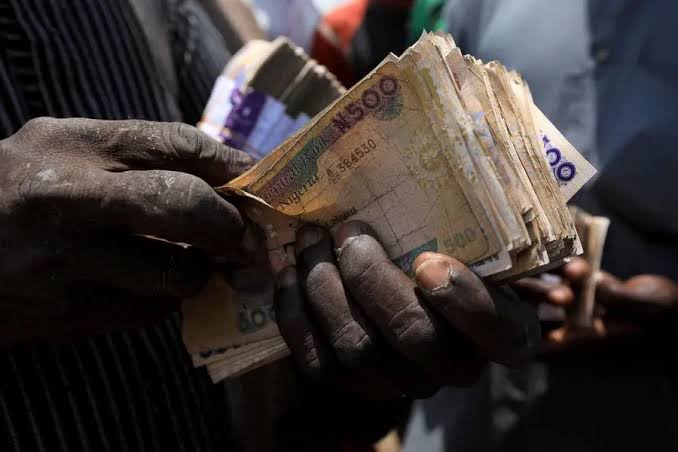
The naira depreciated to N1,550 against the dollar at the parallel section of the foreign exchange (FX) market on Wednesday.
The current FX rate signifies a decline of 1.95 percent from the N1,520/$ reported on May 13.
Currency traders, also known as street traders, in Lagos, quoted the buying rate of the local currency at N1,510/$ and the selling rate at N1,550/$ — leaving a profit margin of N40.
At the official window, the local currency appreciated by 4.21 percent against the dollar from N1,520.4/$ on May 14 to close at N1,459.02 on Wednesday.
According to FMDQ Exchange, a platform that oversees the official window, a dollar was sold as high as N1,593 and at a low rate of N1,401 during trading hours.
The daily foreign exchange market turnover was $289.14 million.
On May 14, the Economic and Financial Crimes Commission (EFCC) said foreign missions based in Nigeria use third parties to transact in foreign currencies.
Speaking during an interview, Wilson Uwujaren, EFCC’s acting director of public affairs, said the commission has a task force whose duty is to fight the abuse of the naira and discourage transactions in dollars within Nigeria — which is against the law.
Business
To spur liquidity’ — CBN grants approval in principle to 14 new IMTOs

The Central Bank of Nigeria (CBN) has granted approval in principle (AIP) to 14 new international money transfer operators (IMTOs).
IMTOs carry out cross-border fund transfer services for individuals and entities residing abroad to recipients in Nigeria.
Approval in principle is a conditional acceptance of a proposal subject to meeting other requirements for final approval.
CBN granted the AIP amid plans to double foreign currency remittance flows through formal channels.
Hakama Sidi Ali, CBN’s acting director of corporate communications, spoke in Abuja on Wednesday.
Ali said the approval will help increase the sustained supply of foreign exchange in the official market by promoting greater competition and innovation among IMTOs to lower the cost of remittance transactions and boost financial inclusion.
“This will spur liquidity in Nigeria’s Autonomous Foreign Exchange Market (NAFEX), augmenting price discovery to enable a market-driven fair value for the naira,” she said.
Ali also said the move by the apex bank is a means of reducing the historical volatility in Nigeria’s exchange rate caused by external factors, such as fluctuations in foreign investment and oil export proceeds.
On April 20, Olayemi Cardoso, CBN governor, said the financial regulator collaborated with IMTOs to collectively commit to doubling remittance flows through formal channels into Nigeria.
“We’ve had very productive discussions with leading IMTOs where we collectively committed to doubling remittance flows through formal channels into Nigeria in the immediate short to medium term,” Cardoso said.
He said CBN has also set up a task force to address bottlenecks hindering flows through formal channels.
-

 Entertainment7 days ago
Entertainment7 days agoTems announces release date for her debut album ‘Born In The Wild’
-

 Business1 week ago
Business1 week agoNERC reduces FX rate for calculating new tariff for Band A customers by 16.03%
-

 Business1 week ago
Business1 week agoNaira depreciates at parallel market, appreciates at official window
-
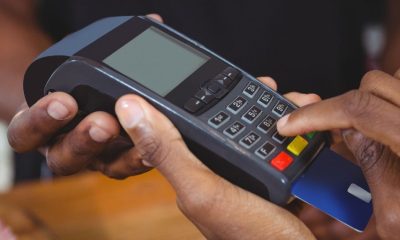
 Business1 week ago
Business1 week agoFive levies Nigerians pay for electronic transactions
-

 Entertainment1 week ago
Entertainment1 week agoPortable acquires luxury house in Lekki (Video)
-

 Religion2 days ago
Religion2 days agoAllow RCCG members attend your schools for free, Lege Miami tells pastor Adeboye
-

 Entertainment6 days ago
Entertainment6 days agoEsther Ogbu narrates how she once slept on the floor for seven days to avoid being sexually molested
-
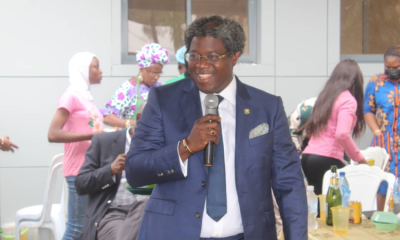
 News1 week ago
News1 week agoLagos state government introduces electronic system for 10-minute approval of building permits


















